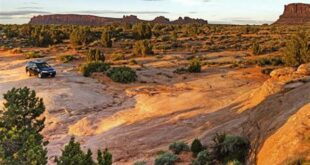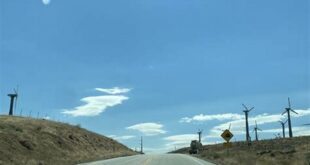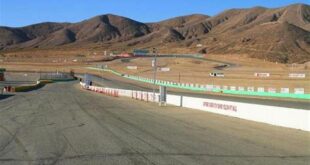Willow Springs Road Camping: The Ultimate Guide
Editor’s Note: Willow Springs Road Camping is a popular and affordable way to experience the great outdoors. Whether you’re a seasoned camper or a first-timer, this guide has everything you need to know to plan your next camping trip.
We’ve done the research and put together this comprehensive guide to help you make the most of your Willow Springs Road camping experience.
Key Differences
| Feature | Willow Springs Road Camping |
|---|---|
| Cost | Free |
| Amenities | None |
| Location | Near Payson, Arizona |
| Reservations | Not required |
Main Article Topics
- Planning Your Trip
- What to Pack
- Camping Etiquette
- Safety Tips
- Things to Do
Willow Springs Road Camping
Willow Springs Road camping offers a unique and affordable way to experience the great outdoors. Whether you’re a seasoned camper or a first-timer, there are many things to consider when planning your trip. Here are 9 key aspects to keep in mind:
- Location: Willow Springs Road is located near Payson, Arizona, in the Tonto National Forest.
- Cost: Camping is free, but there are no amenities.
- Reservations: Reservations are not required.
- Amenities: There are no amenities at Willow Springs Road, so you’ll need to bring everything you need with you.
- Camping Etiquette: Be respectful of other campers and the environment. Pack out what you pack in, and leave your campsite clean.
- Safety Tips: Be aware of your surroundings and take precautions to avoid accidents. Let someone know where you’re going and when you expect to return.
- Things to Do: There are many things to do in the area, including hiking, fishing, and exploring the nearby ruins.
- Planning Your Trip: Plan your trip in advance and be prepared for all types of weather.
- What to Pack: Pack everything you need for camping, including food, water, shelter, and clothing.
These are just a few of the key aspects to keep in mind when planning your Willow Springs Road camping trip. By following these tips, you can help ensure that you have a safe and enjoyable experience.
Location
The location of Willow Springs Road in Payson, Arizona, within the Tonto National Forest, offers several advantages for campers:
- Proximity to Payson: The close proximity to Payson provides easy access to amenities such as grocery stores, restaurants, and gas stations.
- Scenic Beauty: The Tonto National Forest is known for its stunning scenery, including towering ponderosa pines, rugged mountains, and sparkling lakes.
- Abundant Wildlife: The area is home to a variety of wildlife, including deer, elk, and birds.
- Numerous Recreation Opportunities: The Tonto National Forest offers a wide range of recreation opportunities, including hiking, fishing, camping, and off-roading.
Overall, the location of Willow Springs Road in Payson, Arizona, within the Tonto National Forest, enhances the camping experience by providing convenience, scenic beauty, and abundant recreation opportunities.
Cost
When considering “willow springs road camping,” the cost factor is intertwined with the absence of amenities. This unique combination presents both advantages and considerations for campers.
- Financial Benefits: The absence of amenities translates to free camping, making it an attractive option for budget-conscious campers. It eliminates the costs associated with RV hookups, showers, or laundry facilities, allowing campers to save money while enjoying the outdoors.
- Self-Reliance: Camping without amenities fosters self-reliance and a heightened connection with nature. Campers must be prepared to bring and manage all their supplies, including water, food, shelter, and sanitation. This aspect appeals to experienced campers seeking a more rustic and immersive experience.
- Limited Convenience: The lack of amenities can limit convenience, especially for campers accustomed to certain comforts. Campers may need to travel further for supplies, find alternative methods for showers or laundry, and be prepared for more primitive camping conditions.
- Environmental Impact: The absence of amenities reduces the environmental impact on the campsite. Without designated water or waste disposal facilities, campers must practice responsible waste management and water conservation to preserve the natural surroundings.
In summary, the cost-amenity dynamic in “willow springs road camping” offers both financial benefits and challenges. Campers must weigh the cost savings and self-reliance opportunities against the limited convenience and need for self-sufficiency. Understanding these factors helps campers make informed decisions and prepare adequately for a unique and potentially rewarding camping experience.
Reservations
The absence of reservation requirements for “willow springs road camping” presents unique advantages and considerations for campers.
- Flexibility and spontaneity: Without reservations, campers have the flexibility to adjust their plans based on weather, availability, or personal preferences. They can arrive and depart at their convenience, allowing for a more spontaneous and adaptable camping experience.
- First-come, first-served basis: Campsites are allocated on a first-come, first-served basis, which means campers must arrive early to secure a spot, especially during peak season. This can lead to competition for campsites and may require campers to adjust their arrival time or explore alternative camping options.
- Availability challenges: Because reservations are not required, there is no guarantee of campsite availability, particularly during popular times or holidays. Campers may need to consider alternative camping locations or adjust their travel plans to avoid disappointment.
- Preparation and self-sufficiency: The lack of reservations emphasizes the importance of preparation and self-sufficiency. Campers must be prepared to arrive early, manage their expectations regarding campsite availability, and have alternative plans in case their desired campsite is occupied.
In summary, the “Reservations: Reservations are not required.” aspect of “willow springs road camping” offers both flexibility and challenges. Campers must weigh the advantages of spontaneity and adaptability against the potential for competition and availability constraints. Proper planning, self-sufficiency, and a flexible mindset can help campers navigate these considerations and enhance their overall camping experience.
Amenities
The absence of amenities at Willow Springs Road is an integral aspect of the “willow springs road camping” experience. This unique characteristic presents both challenges and opportunities for campers, shaping the overall nature of their stay.
Challenges:
- Self-reliance and preparation: Campers must be self-sufficient and well-prepared, as there are no facilities or services available on-site. This includes bringing all necessary supplies, such as food, water, shelter, cooking equipment, and sanitation items.
- Limited convenience: The lack of amenities can limit convenience, especially for campers accustomed to certain comforts. Campers may need to travel further for supplies, find alternative methods for showers or laundry, and be prepared for more primitive camping conditions.
- Environmental impact: Without designated waste or water disposal facilities, campers must practice responsible waste management and water conservation to preserve the natural surroundings.
Opportunities:
- Cost savings: The absence of amenities translates to free camping, making it an attractive option for budget-conscious campers. It eliminates the costs associated with RV hookups, showers, or laundry facilities.
- Self-sufficiency and connection with nature: Camping without amenities fosters self-reliance and a heightened connection with nature. Campers must rely on their own resources and skills, leading to a more immersive and rewarding experience.
- Flexibility and adaptability: The lack of amenities allows campers to be more flexible and adaptable in their camping plans. They can adjust their itinerary based on weather, availability, or personal preferences without being tied to specific hookups or services.
In summary, the “Amenities: There are no amenities at Willow Springs Road, so you’ll need to bring everything you need with you.” aspect of “willow springs road camping” presents unique challenges and opportunities. Campers must carefully consider their needs and preferences to ensure they are well-prepared and equipped to make the most of their experience.
Table: Amenities and “willow springs road camping”
| Amenity | Impact on “willow springs road camping” ||—|—|| No designated campsites | Campers must be prepared to find their own campsite and set up their gear. || No water hookups | Campers must bring their own water or find a nearby water source. || No electrical hookups | Campers must rely on alternative power sources, such as generators or solar panels. || No showers or laundry facilities | Campers must find alternative methods for hygiene and laundry. || No trash collection | Campers must pack out all of their trash and dispose of it properly. |
Camping Etiquette
Camping etiquette is an essential aspect of “willow springs road camping” because it helps to preserve the natural environment and ensure a positive experience for all campers. The principles of camping etiquette include respecting other campers, minimizing noise, properly disposing of waste, and leaving the campsite clean.
One of the most important aspects of camping etiquette is respecting other campers. This means being considerate of noise levels,. It also means respecting other campers’ privacy and personal space. For example, it is important to avoid setting up your campsite too close to other campers or walking through their campsite without permission.
Another important aspect of camping etiquette is minimizing noise. This means keeping your voice down, especially at night. It also means being mindful of the noise created by your camping equipment, such as generators or radios.Properly disposing of waste is also essential to camping etiquette. This means packing out all of your trash and food scraps. It also means disposing of human waste properly by burying it in a hole at least 6 inches deep and 200 feet away from water sources.Finally, it is important to leave your campsite clean. This means cleaning up all of your trash and debris before you leave. It also means putting out your campfire completely and cleaning up any spills or messes.By following these principles of camping etiquette, you can help to preserve the natural environment and ensure a positive experience for all campers.
Table: Camping Etiquette and “willow springs road camping”
| Camping Etiquette | Impact on “willow springs road camping” ||—|—|| Respect other campers | Helps to create a positive and enjoyable atmosphere for all campers. || Minimize noise | Helps to preserve the peace and tranquility of the natural environment. || Properly dispose of waste | Helps to protect the environment and prevent the spread of disease. || Leave your campsite clean | Helps to preserve the natural beauty of the campsite and prevent litter. |
Safety Tips
When engaging in “willow springs road camping,” safety should be a top priority. The absence of amenities and potential isolation inherent in this type of camping necessitate specific precautions to ensure a safe and enjoyable experience.
-
Be Aware of Your Surroundings:
Maintain situational awareness by paying attention to your surroundings. Observe any potential hazards, such as uneven terrain, wildlife, or weather conditions. Stay alert and trust your instincts if something feels amiss.
-
Take Precautions to Avoid Accidents:
Minimize risks by taking necessary precautions. Secure your campsite by properly setting up your tent and equipment. Be cautious when cooking or handling fire, and store food properly to avoid attracting wildlife. Wear appropriate footwear for hiking and exploring the area.
-
Let Someone Know Your Plans:
Inform a trusted individual about your camping trip, including your destination, expected arrival and departure times, and emergency contact information. This ensures that help can be dispatched promptly in case of an emergency.
-
Other Safety Considerations:
Additional safety measures include carrying a whistle or personal locator beacon for emergencies, having a first-aid kit and basic repair tools, and being prepared for changing weather conditions.
By adhering to these safety tips, campers can mitigate risks and enhance their overall “willow springs road camping” experience, ensuring a safe and memorable adventure in the wilderness.
Things to Do
The abundance of recreational activities available in the vicinity of “willow springs road camping” serves as a major attraction for outdoor enthusiasts. These activities not only complement the camping experience but also enhance its overall appeal and provide a well-rounded adventure.
Hiking trails of varying difficulty levels traverse the scenic landscapes surrounding the camping area, offering opportunities for exploration and immersion in nature. Anglers can cast their lines in nearby lakes and streams, seeking a rewarding catch while enjoying the tranquility of the water bodies. Additionally, history buffs and culture enthusiasts can delve into the past by exploring the ruins of ancient settlements, gaining insights into the region’s rich heritage.
The presence of these diverse activities not only extends the duration of a camping trip but also caters to a wide range of interests and preferences. Campers can tailor their itinerary to suit their desired pace and style, whether it involves invigorating hikes, relaxing fishing expeditions, or thought-provoking historical explorations.
Furthermore, engaging in these activities fosters a deeper connection with the natural and cultural surroundings. By venturing into the wilderness, campers develop a greater appreciation for the delicate balance of ecosystems and the importance of preserving them. Likewise, exploring historical ruins provides a tangible link to the past, offering a glimpse into the lives and cultures of those who came before.
In summary, the multitude of “Things to Do: There are many things to do in the area, including hiking, fishing, and exploring the nearby ruins.” available in conjunction with “willow springs road camping” elevates the overall experience, providing a rich tapestry of outdoor recreation, historical exploration, and environmental stewardship.
Table: Activities and “willow springs road camping”
| Activity | Impact on “willow springs road camping” | |—|—| | Hiking | Enhances the camping experience by providing opportunities for exercise, exploration, and nature appreciation. | | Fishing | Complements the camping experience by offering a relaxing and potentially rewarding activity in the serene surroundings. | | Exploring nearby ruins | Enriches the camping experience by providing historical and cultural context, fostering a deeper understanding of the region’s heritage. |
Planning Your Trip
Planning Your Trip encompasses a crucial aspect of “willow springs road camping,” as it lays the foundation for a safe and enjoyable experience in the wilderness. By taking the time to plan and prepare in advance, campers can mitigate potential risks, maximize their comfort, and fully immerse themselves in the natural surroundings.
-
Assessing the Location:
Thoroughly research the specific location you intend to camp at, including its terrain, weather patterns, and available amenities. Familiarizing yourself with the area will help you make informed decisions about gear, supplies, and potential activities.
-
Weather Preparedness:
Anticipate changing weather conditions and pack accordingly. Bring layers of clothing to adjust to fluctuating temperatures, and include rain gear and sturdy footwear to navigate potential rain or muddy trails.
-
Essential Supplies:
Create a comprehensive packing list that includes all the essentials for camping, such as food, water, shelter, cooking equipment, and first-aid supplies. Ensure you have sufficient supplies for the duration of your trip and consider any dietary or medical needs.
-
Contingency Plans:
Plan for unexpected situations by having a backup plan or alternative campsite in mind. Inform someone about your itinerary and expected return date, and consider carrying a whistle or personal locator beacon for emergencies.
By meticulously planning your trip and being prepared for all types of weather, you can enhance the safety and enjoyment of your “willow springs road camping” experience, allowing you to fully embrace the beauty and tranquility of the wilderness.
What to Pack
When embarking on “willow springs road camping,” meticulous packing is paramount to ensure a comfortable and safe wilderness experience. The absence of amenities necessitates self-sufficiency, placing greater emphasis on bringing everything essential for the duration of your stay.
-
Food and Water:
Pack non-perishable food items and sufficient water to sustain yourself throughout your trip. Consider dietary restrictions and pack accordingly. Water sources may not be readily available, so carrying an adequate supply is crucial.
-
Shelter:
Bring a tent or other suitable shelter to protect yourself from the elements. Ensure it is weather-appropriate and provides adequate space for your group.
-
Clothing:
Pack layers of clothing to accommodate changing temperatures. Include moisture-wicking fabrics, rain gear, and sturdy footwear for outdoor activities.
-
Other Essentials:
Remember to pack essential items such as a first-aid kit, toiletries, cooking equipment, fire starter, insect repellent, and a flashlight or headlamp.
By carefully considering “What to Pack: Pack everything you need for camping, including food, water, shelter, and clothing,” you can minimize discomfort and maximize your enjoyment during your “willow springs road camping” adventure.
FAQs on Willow Springs Road Camping
For those considering “willow springs road camping,” the following frequently asked questions aim to provide clear and informative answers to common concerns and misconceptions.
Question 1: Are there any fees associated with camping at Willow Springs Road?
No, camping at Willow Springs Road is free of charge.
Question 2: Can reservations be made for campsites at Willow Springs Road?
Reservations are not required for camping at Willow Springs Road. Campsites are available on a first-come, first-served basis.
Question 3: What amenities are available at Willow Springs Road campsites?
There are no amenities available at Willow Springs Road campsites. Campers must bring all necessary supplies, including water, food, shelter, and cooking equipment.
Question 4: Is there a time limit for camping at Willow Springs Road?
There is no time limit for camping at Willow Springs Road. However, campers are expected to follow Leave No Trace principles and pack out everything they pack in.
Question 5: Are campfires allowed at Willow Springs Road campsites?
Yes, campfires are allowed at Willow Springs Road campsites. However, campers must be mindful of fire safety and ensure that fires are properly extinguished before leaving the campsite.
Question 6: What activities are available in the area surrounding Willow Springs Road?
The area surrounding Willow Springs Road offers a variety of recreational activities, including hiking, fishing, and wildlife viewing. Campers can also explore nearby historical sites and scenic overlooks.
Summary of key takeaways or final thought:
Willow Springs Road camping provides a unique and affordable opportunity to experience the beauty of the outdoors. By following these guidelines and being prepared, campers can ensure a safe and enjoyable stay.
Transition to the next article section:
For more information on Willow Springs Road camping, please visit the official website or contact the local ranger station.
Willow Springs Road Camping Tips
Embarking on a camping trip at Willow Springs Road requires careful planning and preparation. Here are several essential tips to ensure a safe and enjoyable experience:
Tip 1: Plan Ahead
Before venturing out, familiarize yourself with the area, weather conditions, and available amenities. This knowledge will help you pack appropriately and make informed decisions.
Tip 2: Pack for Self-Reliance
As there are no amenities at Willow Springs Road, you must bring everything you need for camping, including food, water, shelter, cooking equipment, and toiletries.
Tip 3: Respect the Environment
Follow Leave No Trace principles by packing out everything you pack in and disposing of waste properly. This helps preserve the natural beauty of the area for future campers.
Tip 4: Be Aware of Your Surroundings
Stay alert to your surroundings and be cautious of wildlife. Keep food and scented items securely stored to avoid attracting animals.
Tip 5: Prepare for Emergencies
Carry a first-aid kit and basic repair tools for minor emergencies. Inform someone about your itinerary and expected return date, and consider membawa a whistle or personal locator beacon.
Tip 6: Observe Fire Safety
If you plan to build a campfire, choose a designated fire pit and ensure it is completely extinguished before leaving your campsite.
Tip 7: Respect Other Campers
Maintain a respectful distance from other campsites and keep noise levels down, especially at night.
Summary:
By following these tips, you can enhance your Willow Springs Road camping experience, ensuring a safe, enjoyable, and environmentally responsible stay.
Conclusion
Willow Springs Road camping offers a unique and affordable way to experience the great outdoors. By embracing self-reliance, respecting the environment, and following safety guidelines, campers can enjoy a safe and fulfilling adventure amidst the natural beauty of the area.
As you plan your Willow Springs Road camping trip, remember the key takeaways explored in this article: the absence of amenities necessitates careful preparation, adherence to Leave No Trace principles is crucial for environmental preservation, and safety should always be a top priority. Embrace the opportunity to connect with nature while fostering a sense of responsibility towards the wilderness.







